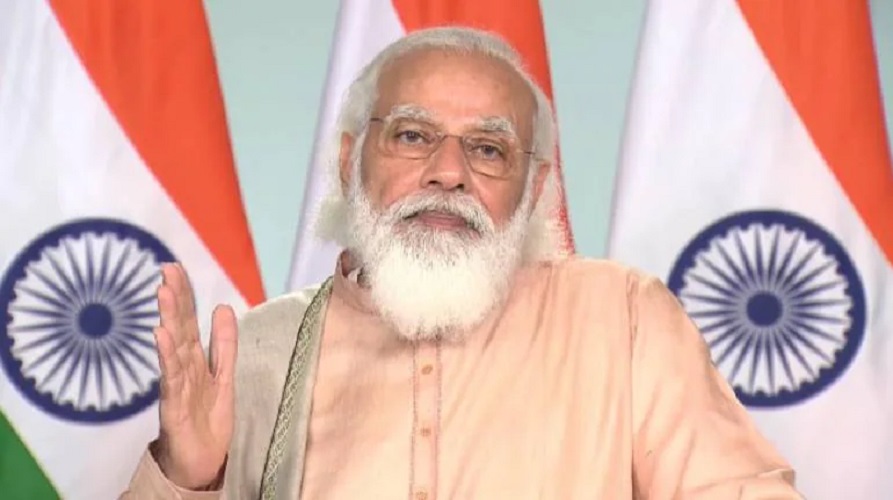India
The government has given the green light to industry to produce light tanks jammers simulators

Officials familiar with the development said the government gave its in-principle approval to a slew of indigenous defence projects on Thursday, including light tanks, airborne stand-off jammers, communication equipment, and simulators, as part of a renewed push for self-reliance in the defence sector.
The defence ministry has approved nine such projects, four under the ‘Make-I’ category of the Defence Acquisition Procedure 2020 and five under the ‘Make-2’ category.
The Make in India project, which aims to enhance indigenous capabilities via the participation of both the public and commercial sectors, is built around the ‘Make’ capital acquisition category. Government-funded projects are referred to as “Make-I,” whereas industry-funded programmes are referred to as “Make-II.”
“The defence ministry has taken a historic move by offering four Make-I projects to Indian industry for design and development. The industry will be given financial assistance to produce prototypes for these projects, according to a statement released by the ministry.
The four projects involve the design and development of light tanks, communication equipment that complies with Indian security norms, an aerial electro-optical pod with a ground-based system, and airborne stand-off jammers.
“This is the first time that Indian industry has been involved in the creation of big-ticket platforms like light tanks and communication equipment with Indian security protocols since the announcement of the industry-friendly DAP-2020,” the ministry stated.
Systems for Apache combat aircraft and Chinook multi-mission choppers, smart wearable equipment for aviation maintenance, independent combat vehicle, and embedded surveillance and aiming system for mechanized forces are among the five projects approved under the industry-funded Make-II procedure.
The ‘Make-II’ category includes projects that entail the prototype creation of military gear or its improvement for import replacement with no government assistance.
“Indigenous development of these projects would assist harness the design skills of the Indian military sector and establish India as a design leader in these technologies,” the ministry continued.
Other sub-category of ‘Make’ is ‘Make-III,’ which encompasses military gear that isn’t conceived or developed in-house but may be built in the nation to reduce imports, with Indian enterprises working with foreign partners to do so.
To boost self-reliance in the defence sector, India set aside 84,598 crore —- 68 per cent of the military’s capital acquisition budget —- for purchasing locally produced weapons and systems in the Union Budget announced on February 1, as well as allocating 25% of the defence R&D budget to private industry, startups, and academia to encourage them to pursue design and development of military platforms.
Last year, India put aside 70,221 crores for domestic defence procurement, or 64 per cent of the military’s capital budget, compared to 51,000 crores, or 58 per cent of the capital budget, in 2020-21.
Prime Minister Narendra Modi stated last week that personalization and originality of military gear were vital to maintaining the surprise edge over India’s rivals and that this could only be done if weapons and systems were produced in the nation.
India will issue a new list of weapons and systems that cannot be imported shortly. This will be the third positive indigenisation list — the government has already issued two lists prohibiting the entry of 209 weapons and equipment.
Artillery guns, missile destroyers, ship-borne cruise missiles, light combat aircraft, light transport aircraft, long-range land-attack cruise missiles, basic trainer aircraft, multi-barrel rocket launchers, assault rifles, sniper rifles, mini-UAVs, specified types of helicopters, next-generation corvettes, airborne early warning and control (AEW&C) systems, tank engines, and medium-range surface-to-air missile systems are among the items on the list.
The government has signed contracts for 54,000 crores for domestic arms purchase since the first two lists were announced, with agreements totalling 4.5 lakh crore in the process.
Latest News
A Thirty-one-year-old Woman Was Defrauded Of ₹17 Lakh By Fraudsters Posing As Police Officers

A 31-year-old woman from Thane was scammed out of Rs 17 lakh in a drugs-in-parcel fraud, according to local police. On September 6, the complainant received a call from an unknown person claiming that a parcel addressed to her, being sent from Mumbai to Taiwan, had been intercepted. The caller alleged that the parcel contained MD drugs and informed her that a case had been filed against her with the narcotics department.
The woman denied booking any parcel, but the call was transferred to another person who posed as a police officer. The imposter then conducted a video call with her, pretending to record her statement for the investigation.
In order to avoid further scrutiny, the complainant was pressured into depositing Rs 17 lakh into a bank account provided by the scammer. After complying, she informed her family, who helped her realize she had been duped. The victim then approached the police to register a case.
Authorities are investigating the incident and have urged the public to be vigilant against such fraudulent schemes, where scammers use fear tactics to extort money. The case has highlighted the need for awareness regarding online fraud.
Latest News
Six Candidates For Jobs Who Stole Rs 1.31 Crore Were Arrested

Police in Navi Mumbai have accused six individuals of defrauding job applicants out of Rs 1.31 crore by falsely promising them clerical positions with the Indian Railways. According to officials from the Kharghar police station, between September 2022 and April 2023, the accused targeted 20 victims and collected the money through both cash and digital transfers.
One of the defendants reportedly used the embezzled funds to construct a house in Kolhapur. The victims, all Kharghar residents, initially trusted the promises made regarding job placements. However, when they began asking for updates on the positions, the accused stopped responding and refused to return the money. Realizing they had been deceived, the victims approached the police for help.
Authorities have registered a First Information Report (FIR) under Sections 34 (common intention), 406 (criminal breach of trust), and 420 (cheating) of the Indian Penal Code. Investigations are ongoing, and police are currently searching for the suspects involved in the scam.
The case has brought attention to the rising number of fraudulent schemes targeting job seekers, with law enforcement urging individuals to remain cautious when dealing with employment offers that appear too good to be true.
Latest News
Police In Navi Mumbai Have Taken Out A Rs 25 Lakh Contract To Kill Bollywood Actor, AK-47, Sourced From Pakistan

According to a charge sheet issued by the Navi Mumbai Police and seen by sources on Thursday, October 17, Bollywood actor Salman Khan had a contract worth Rs 25 lakh stolen from him close to his Panvel home in Maharashtra.
Five defendants have been named in the case, and the charge sheet claims that the Bishnoi gang, commanded by imprisoned mobster Lawrence Bishnoi, stole the contract. The accused were getting ready to purchase weapons from Pakistan, such as the AK-47, AK-92, and M-16, as well as the Turkish-made Zigana, which was used to shoot Punjabi musician Sidhu Moosewala.
The accused claimed that they were hiding in Pune, Raigad, Navi Mumbai, and Gujarat and that they had hired numerous youngsters under the age of eighteen to murder Bollywood actors. Between August 2023 and April 2024, between 60 and 70 persons watched Salman Khan’s movement to kill him at Bandra House, Panvel Farmhouse, and Goregaon Film City.
Based on the charge sheet Sukkha, who was taken into custody on Thursday in Panipat, Haryana, attributed the murder to four conspirators and the designated gunman, Ajay Kashyap, also known as AK. Following an examination by the accused Kashyap, they concluded that they would need expensive weaponry to execute out the murder because of the Khan’s security and bulletproof cars.
While negotiating the conditions of the arms purchase, Sukkha used a video chat to reach Dogar, an arms dealer stationed in Pakistan, and displayed an AK-47 and other cutting-edge weapons covered in a shawl. After Sukha paid 50% in advance and the remaining balance upon delivery in India, Dogar consented to provide the guns.
All of the gunmen were awaiting approval from Goldie Brar, a Canadian mobster, and Anmol Bishnoi, the brother of Lawrence Bishnoi. According to the charge sheet, they would meet at Kanyakumari after shooting the actor, from which they would take a boat to Sri Lanka and then to a place where Indian detectives couldn’t get to them.
-

 India2 years ago
India2 years agoAs the arrangement with Prashant Kishor falls through Rahul Gandhi has gone overseas again and is uncontactable
-

 Fact Check4 years ago
Fact Check4 years agoNidhi Razdan, fake Harvard professorship, and here is the explanation through her blog.
-

 Latest News3 years ago
Latest News3 years agoTata wins Air India with ₹18,000 crore bid
-

 Technology3 years ago
Technology3 years agoBSNL reveals all new 4G plans starting at ₹16
-

 Latest News3 years ago
Latest News3 years agoGovernment has spent ₹9,725 crores on Covid-19 vaccination drive so far
-

 Latest News3 years ago
Latest News3 years agoJharkhand government cuts Petrol price by massive ₹25 a litre but with a catch
-

 Navi Mumbai3 years ago
Navi Mumbai3 years agoNavi Mumbai civic body raids and tests morning walkers, many found COVID positive
-

 Latest News3 years ago
Latest News3 years agoRaj Kundra Gave ₹25 Lakh Bribe to Mumbai Crime Branch to Avoid Arrest
















